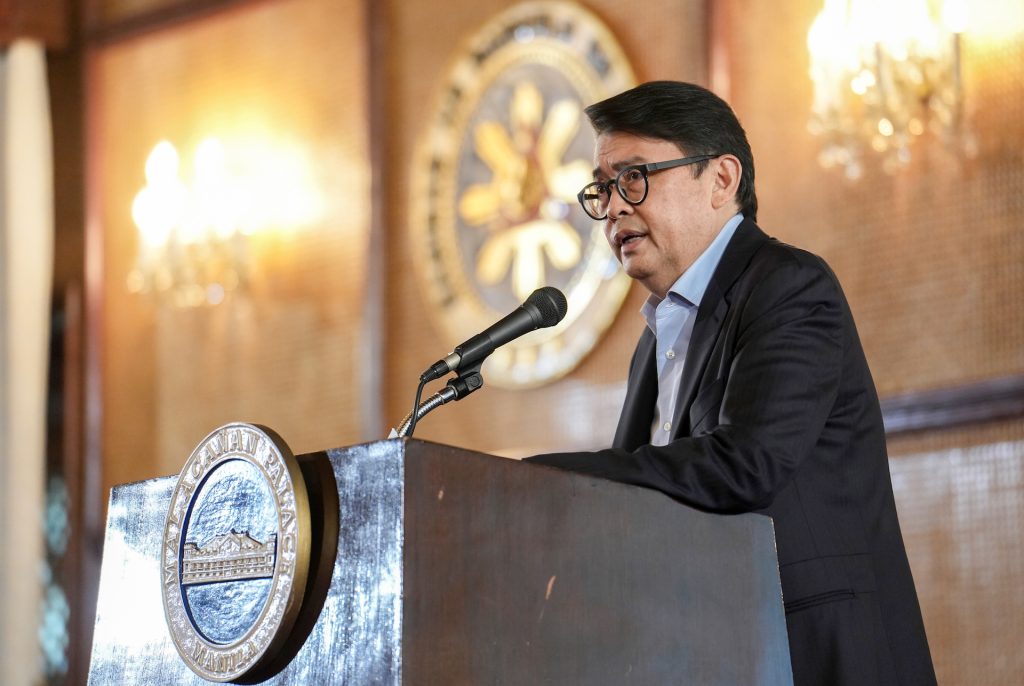
The State of the Nation’s MSMEs
July 22, 2024
Concepcion Welcomes Roque as to DTI
August 2, 2024
Right Words, Right Actions
When the President dropped the bombshell on banning POGOs at the tail end of his State of the Nation Address last week, he quickly directed follow-through actions for government agencies to ensure its effective implementation.
Among the top concerns was the displacement of an estimated 40,000 Filipino workers said to be directly or indirectly employed by the POGOs. This is in addition to the cessation of economic activities that may have trickled down to the local economy through rentals or consumer spending from those who earned money from the POGOs. A few weeks back, there was a similar concern about land ownership; that small farmers might be giving up their land and unknowingly selling to unscrupulous groups.
I look at these concerns and think of how urgently we need to make our country and countrymen resilient to these forces. Thinking back to how we, during the Covid pandemic, rushed to vaccinate the population against the virus, I think it is also high time that we inoculate ourselves against the viruses that threaten our country’s economy.
The President said during the SONA that the benefits of economic development must be inclusive. That “whatever current data proudly bannering our country as among the best-performing in Asia means nothing to a Filipino, who is confronted by the price of rice at P45 to P65 per kilo.”
Nothing can be clearer. Positive economic indicators make a difference when they translate to tangible improvements in the daily lives of Filipinos. A robust economy makes our country more resistant to the ills of criminal syndicates masquerading as legitimate businesses. It strengthens our countrymen from resorting to desperate measures such as selling their land or taking on jobs that might lead to them being trafficked by criminals.
We’ve even expanded this approach to the ASEAN level through the ASEAN Food Security Alliance, bringing a whole-of-region perspective to making food more affordable for Filipinos, especially now that we’re starting to freely trade with one another in the ASEAN.
By breaking down the barriers that have traditionally hindered the growth of small farmers, we can empower these hardworking Filipinos to become more productive and profitable. In a nutshell, successful farmers don’t sell their land.
The multiplier effect of having successful farmers cascades even to those outside the agriculture sector. Food security is not just about production – it’s also about ensuring affordability and accessibility for all Filipinos. That’s why I’m particularly encouraged by the President’s emphasis on this issue. Rising food prices have put a tremendous strain on household budgets, particularly for those living on the margins. By supporting our farmers and streamlining the supply chain, we can help make fresh and affordable food within the reach of every Filipino family.
Small and medium enterprises are the backbone of the Philippine economy because they make up the vast majority of businesses and employ more than half of all Filipinos. Yet they have long struggled with intimidating red tape, limited access to capital and technology and a lack of critical support systems. The President’s focus on easing the bureaucratic burden and investing in both physical and digital infrastructure will go a long way in unlocking the full potential of this dynamic sector. We only need to see how social media and e-wallets created instant entrepreneurs during the pandemic.
The President is also giving recognition to the vital role tourism plays in supporting countless MSMEs across the country. From hotels and restaurants to handicraft makers and tour operators, the tourism value chain is teeming with entrepreneurial Filipinos scattered in the remotest villages of the country: selling handicrafts, supplying to hotels, ferrying tourists and many more odd businesses that sprout because of tourism.
Furthermore, the President’s call to upskill our workforce is spot on. Equipping Filipinos with the skills for high-quality, well-paying jobs will help them weather the challenge of food inflation and other economic pressures. As the lead for the Jobs Cluster of the Private Sector Advisory Council, I can attest that the private sector is fully committed to reskilling and upskilling job seekers, with mentorship from established companies and the tools for quality jobs and small business growth. More than altruism, helping create a highly skilled workforce makes for better business.
It’s truly heartening to see the President and the First Lady so supportive of these private sector initiatives, such as how they welcomed Go Negosyo into the LAB for All program. This broadened the reach of our mentoring, allowing us to talk to more people in more parts of the country. The Department of Education is also instrumental in enabling us to talk to young people and better prepare them for life after school through alternative pathways like entrepreneurship or agripreneurship.
Sustainable, inclusive growth can only be achieved through a collaborative, whole-of-society approach. Economic prosperity won’t happen overnight, and the government can’t do it alone. But with the government and private sector working together under the President’s leadership, I am confident that we will be able to help more Filipinos realize a brighter future. I am glad that I can be part of this transformative journey.
Originally Published in Philippine Star

2/F RFM Corporate Center, Pioneer cor. Sheridan Sts. Mandaluyong City, Metro Manila, Philippines

